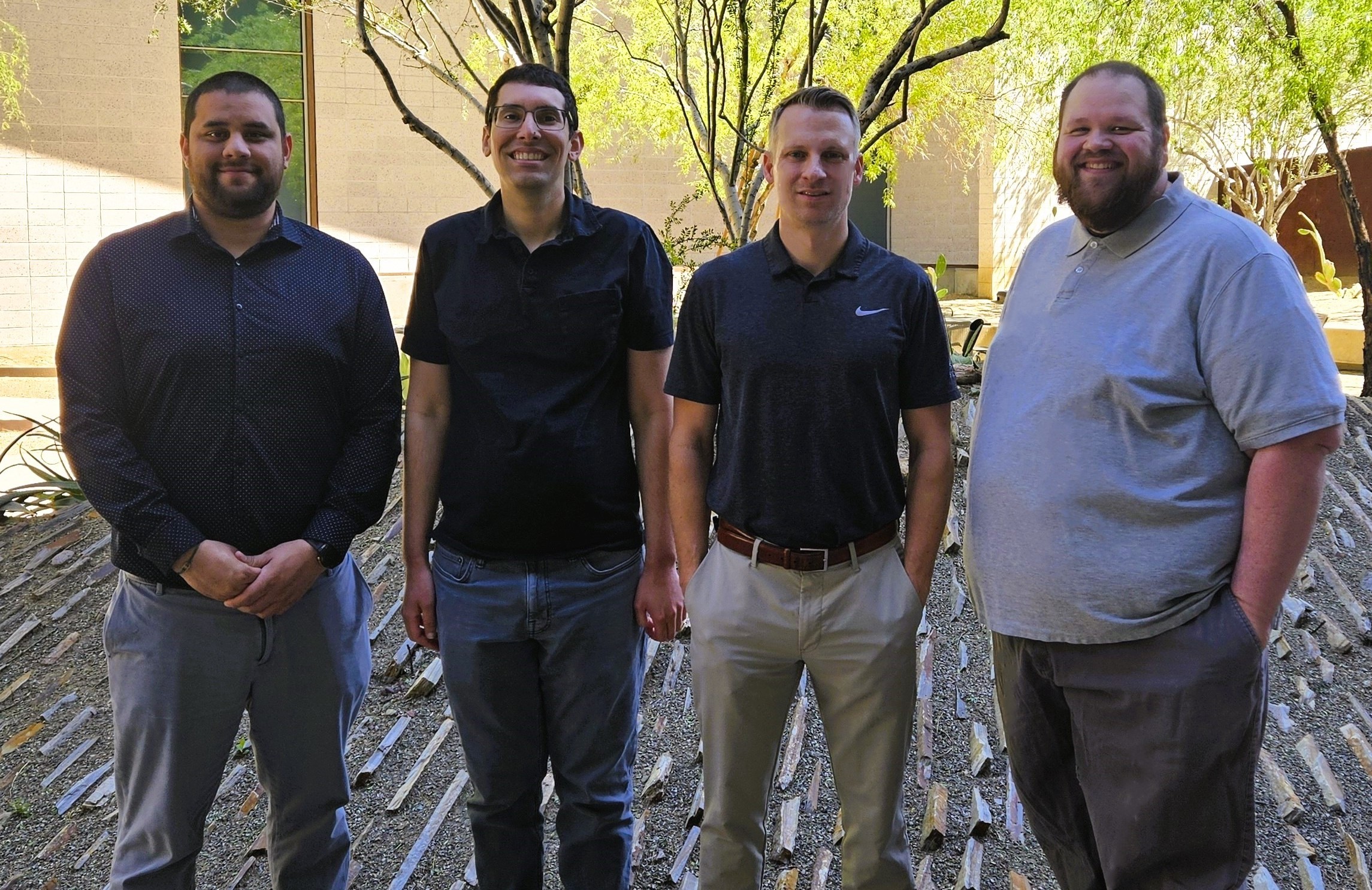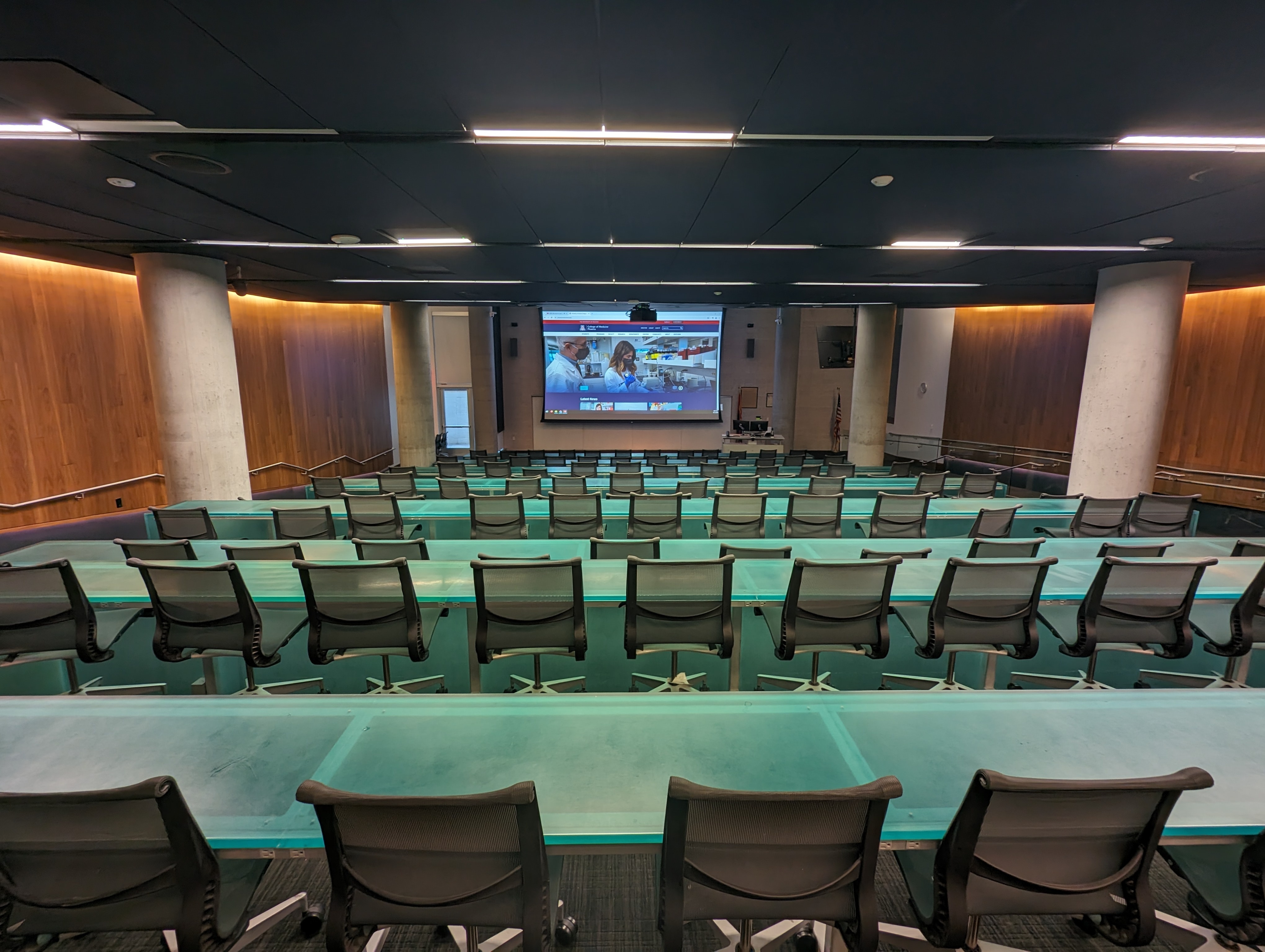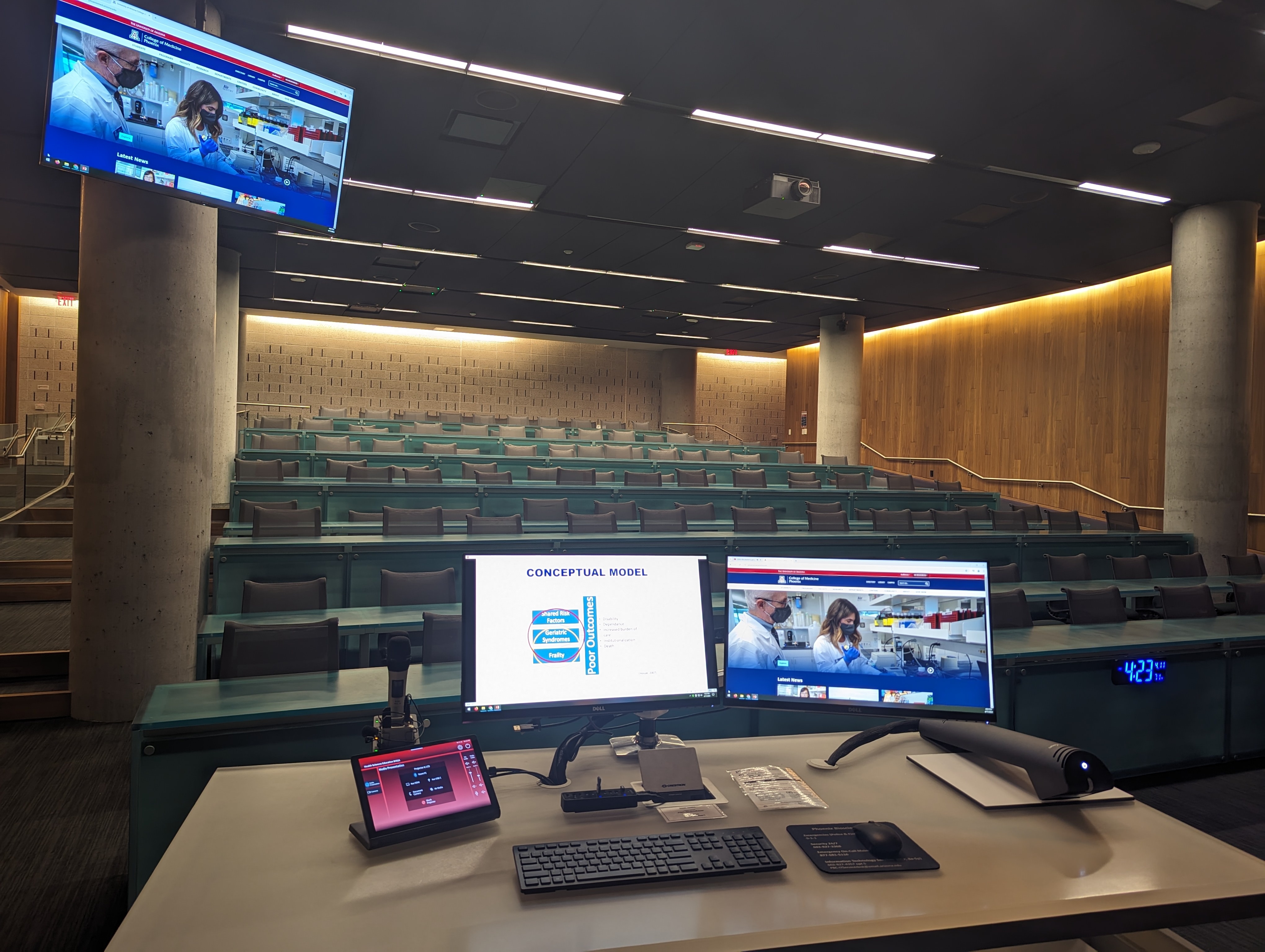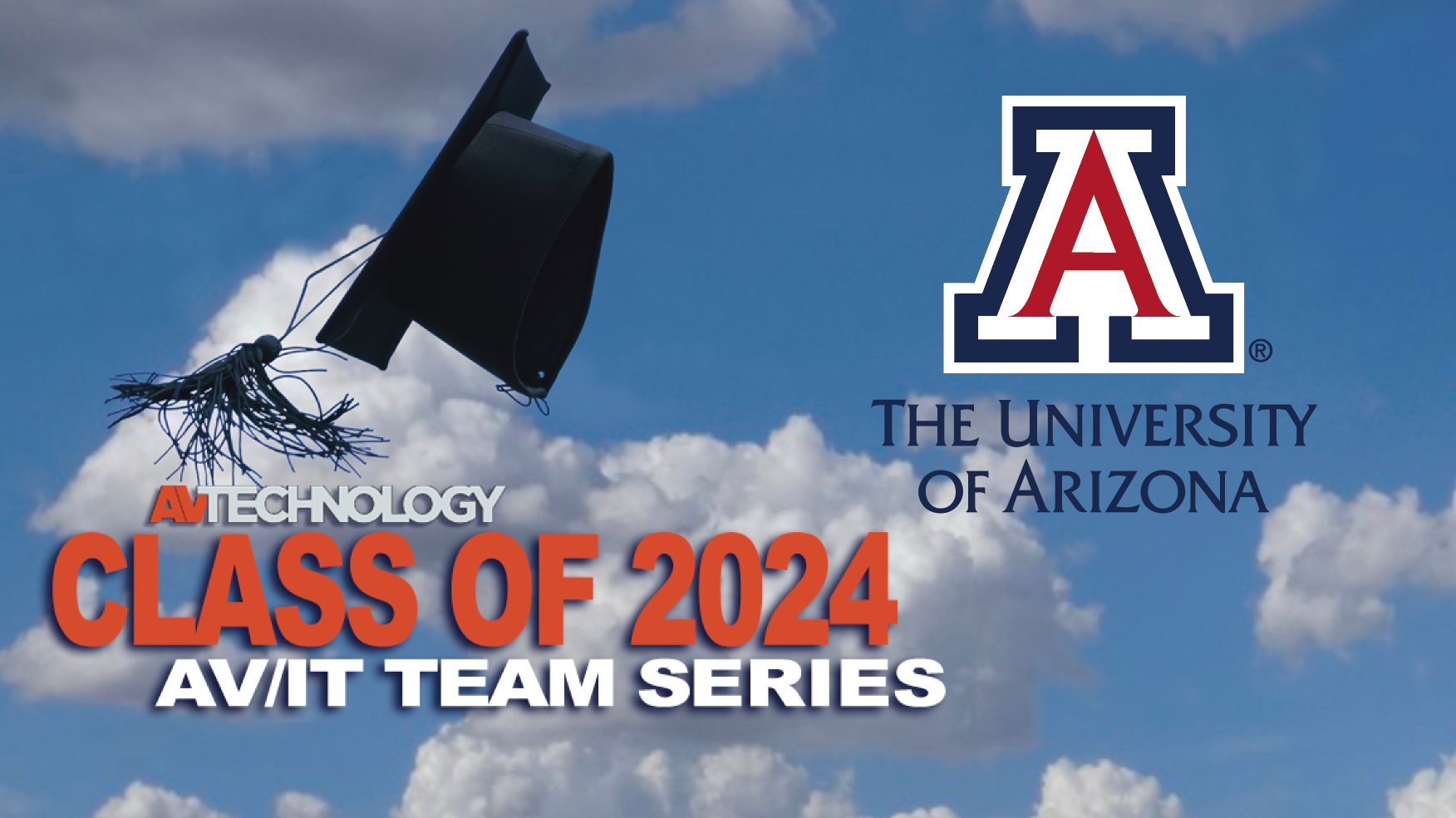
AV/IT TEAM: Chris Dieterich, manager of Learning Technologies; Jacob Phillips, principal systems administrator; Enrique Hernandez, senior technology analyst; Wyatt Medina, audio-visual systems engineer

GOALS: The AV team’s task was retrofitting a traditional lecture space in the University of Arizona’s Health Sciences Education Building at the Phoenix Bioscience Core, in order to bridge both local and remote participation at distance learning sites. As with most learning spaces prior to COVID-19, remote participation was not included in the original scope. Developing a solution that incorporated a better learning experience for both sides became paramount. To accomplish this, transitioning from point-to-point to AV-over-IP was required. Crestron NVX was selected to help meet our needs. Additionally, the installation of Sennheiser Team Connect 2 microphone arrays tied into a Biamp audio server via Dante bridged the audio gap. Sennheiser SpeechLine Wireless was defined as the best solution to capture presenter audio over the network. Due to the advanced content delivered for doctoral and pharmaceutical programs, the system had to perform as if both classes were being taught in the same location, regardless of where the instructor happened to be.

CHALLENGES: Myriad challenges immediately became apparent prior to the upgrade. For starters, lagging supply chain issues impacted the availability of certain products. The project had to be delayed a full semester due to chip limitations with extended lead times. Additionally, the space was designed with a tiered seating layout where ceiling height ranged from 10 to 22 feet. Ceiling access was prohibitively difficult due to fixed furniture located at varying levels throughout the space. During the install, microphone placement was complicated by HVAC and lighting systems in defining the final location. Two of the four TCC2’s were mounted 5 feet higher from the audience due to the tiered layout. Additionally, the current network bandwidth was proven to be insufficient and required fiber to be pulled to a dedicated 10GB switch for both NVX and NDI camera feeds. Finally, a separate LAN had to be created for Dante audio to pass properly across the network and provide a consistent and reliable experience.
Biamp Tesira Server I/O, Crestron NVX-360, Magewell USB Capture, Sennheiser Team Connect Ceiling 2 (TCC2) microphones and SpeechLine Digital Wireless, Sony FHZ131L Projector, BRAVIA BZ40H display and SRG-X120 PTZ cameras over NDI
FINAL INSTALL/USER BENEFITS: With the ability to finally capture audience feedback intelligibly, the space was immediately transformed from solely in-person participation to incorporating virtual interaction. Gone are the days when students had to pass around a microphone to be heard remotely; collaboration between campuses has improved drastically and students have felt more engaged with their remote instructors. Instructors immediately noticed the increased interaction, as well as a more consistent audio experience on the remote end. Initially, getting the project off the ground was demanding on our network team, but once the requirements were defined and implemented appropriately, the design has operated as expected. Our AV team can fully manage almost every piece of equipment over the network and ensure issues are addressed proactively instead of reactively. Creating a user-friendly design that still meets the technical needs of our support team has proved to be extremely valuable in streamlining our service requirements.
